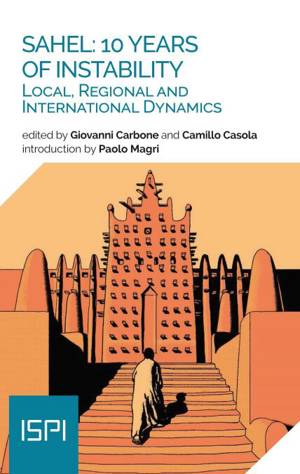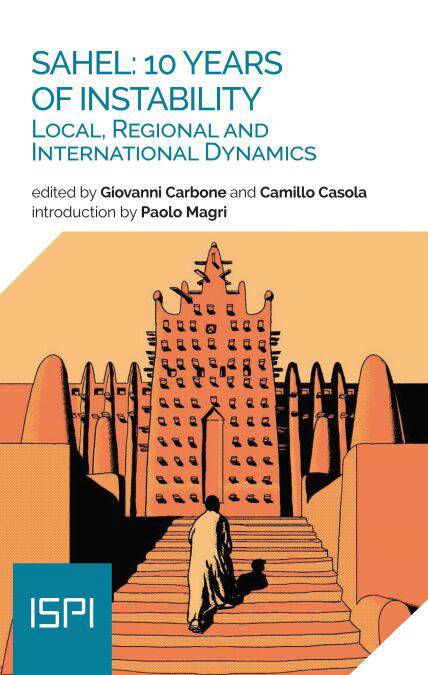
Door een staking bij bpost kan je online bestelling op dit moment iets langer onderweg zijn dan voorzien. Dringend iets nodig? Onze winkels ontvangen jou met open armen!
- Afhalen na 1 uur in een winkel met voorraad
- Gratis thuislevering in België vanaf € 30
- Ruim aanbod met 7 miljoen producten
Door een staking bij bpost kan je online bestelling op dit moment iets langer onderweg zijn dan voorzien. Dringend iets nodig? Onze winkels ontvangen jou met open armen!
- Afhalen na 1 uur in een winkel met voorraad
- Gratis thuislevering in België vanaf € 30
- Ruim aanbod met 7 miljoen producten
Zoeken
Sahel: 10 Years of Instability E-BOOK
Local, Regional and International Dynamics
Giovanni Carbone, Camillo Casola
E-book | Engels
€ 6,99
+ 6 punten
Omschrijving
Ten years after the start of the Malian crisis, political and security instability in the Sahel have changed in scale and nature, and spilled over across national frontiers. The border region between Mali, Burkina Faso and Niger has become the new epicentre of insecurity.
The comeback of military actors on the political scene, and the support provided by large parts of the population to post-coup military juntas is evidence of poor governance and a severe deterioration in the legitimacy of elected authorities. In this complex scenario, the initiatives of external partners affect regional balances, making the Sahel a major theatre for power competition.
How did the crisis evolve over the past decade? What are the main drivers behind local, regional and international dynamics? What prospects for regional stability?
The comeback of military actors on the political scene, and the support provided by large parts of the population to post-coup military juntas is evidence of poor governance and a severe deterioration in the legitimacy of elected authorities. In this complex scenario, the initiatives of external partners affect regional balances, making the Sahel a major theatre for power competition.
How did the crisis evolve over the past decade? What are the main drivers behind local, regional and international dynamics? What prospects for regional stability?
Specificaties
Betrokkenen
- Auteur(s):
- Uitgeverij:
Inhoud
- Aantal bladzijden:
- 139
- Taal:
- Engels
Eigenschappen
- Productcode (EAN):
- 9788855267830
- Verschijningsdatum:
- 24/10/2022
- Uitvoering:
- E-book
- Beveiligd met:
- Digital watermarking
- Formaat:
- ePub

Alleen bij Standaard Boekhandel
+ 6 punten op je klantenkaart van Standaard Boekhandel
Beoordelingen
We publiceren alleen reviews die voldoen aan de voorwaarden voor reviews. Bekijk onze voorwaarden voor reviews.











